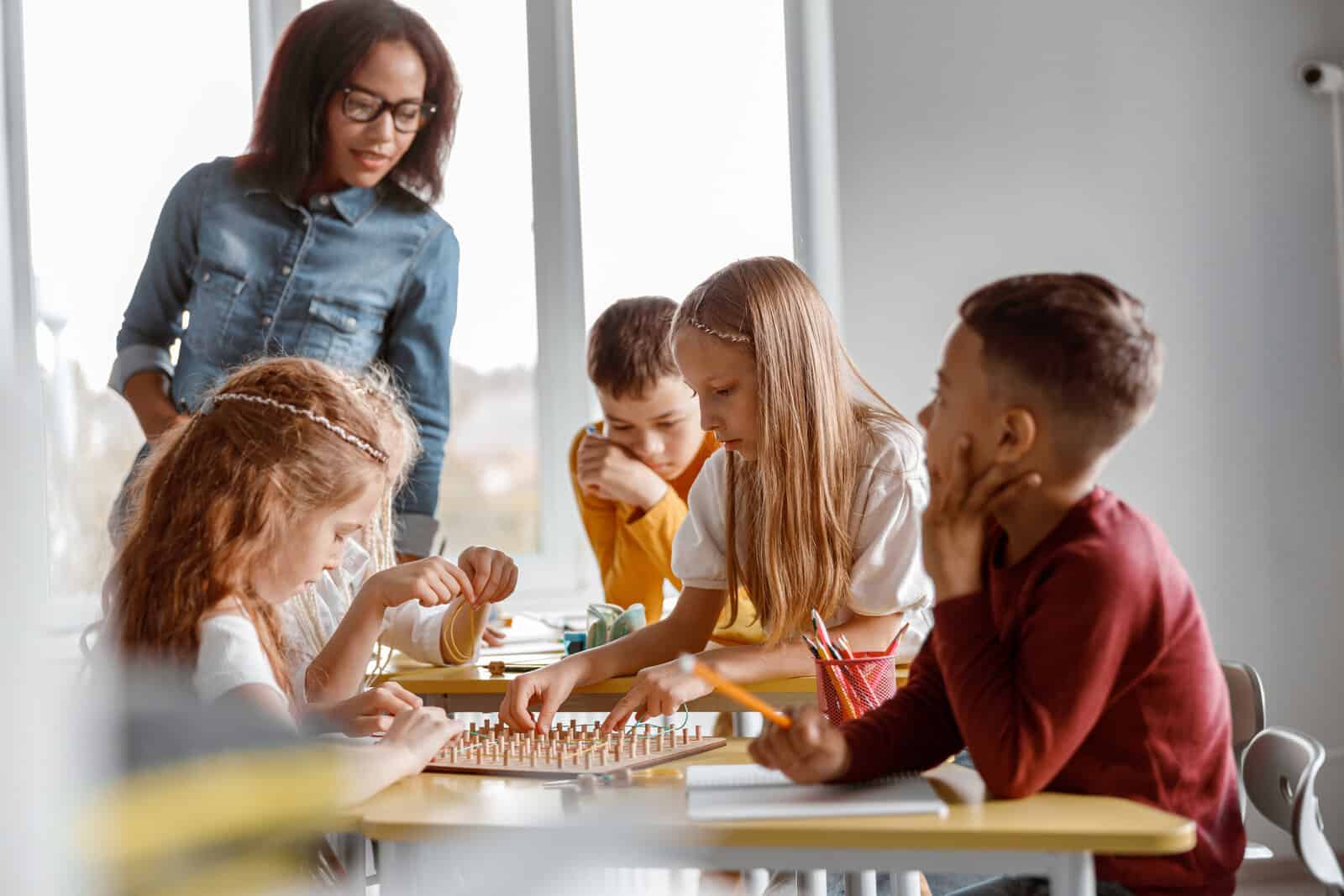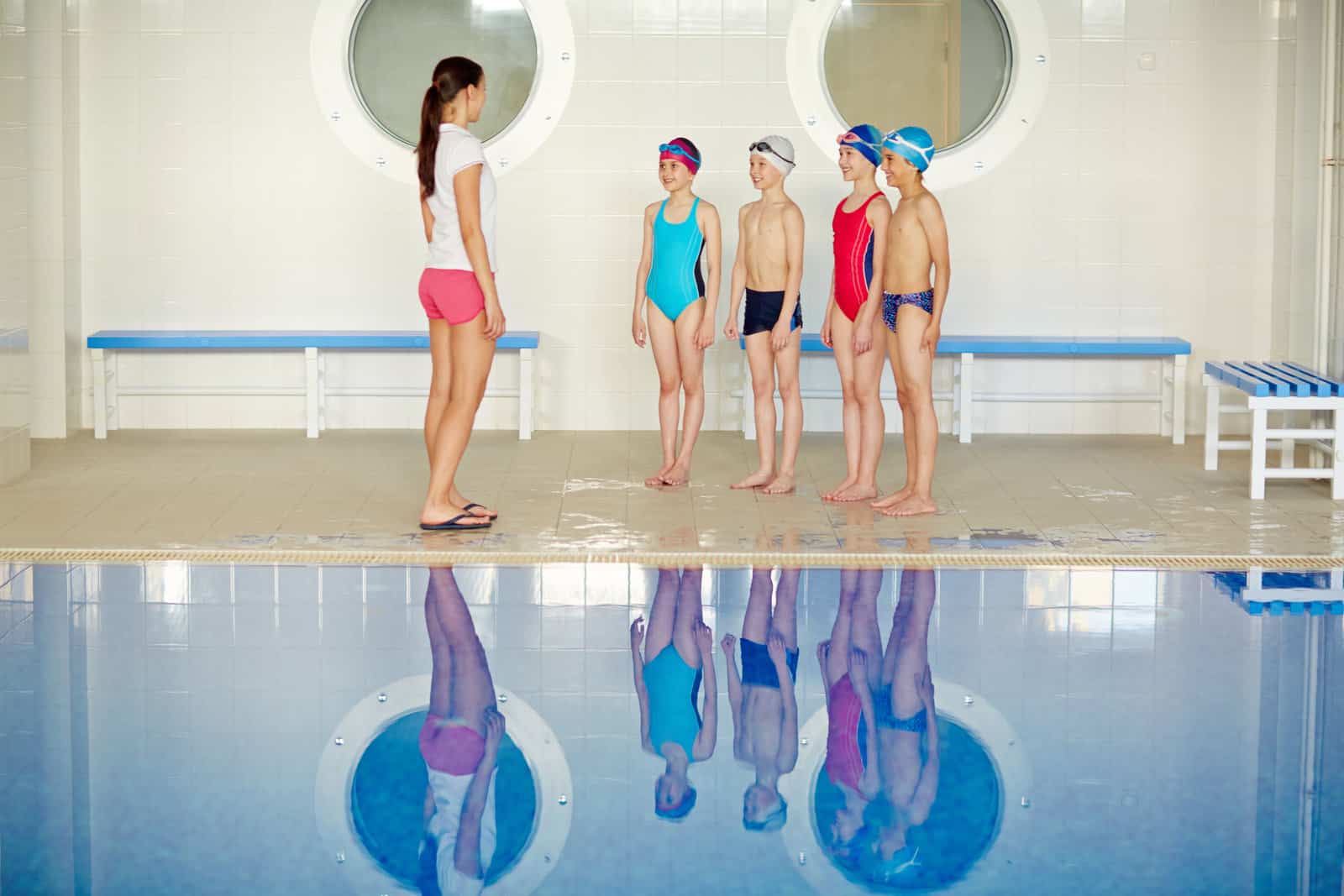
7 Examples of Social Skills and Why They Are Important for Children
We spend most of our life in contact and interacting with other people, from family members and neighbours to schoolmates, friends, and work colleagues. Such interactions, or on a deeper level, relationships, influence our growth in terms of who we become and how we see and connect with the world.
This influence is directly tied to whether or not our interactions with other people happen properly. Good interactions create good influences and vice versa. This ‘properly’, however, can be achieved when we deal with one another using a set of skills known as social skills.
Social skills are the ‘good’ ways people use to communicate with others on a daily basis. That is why they are also called interpersonal skills since they happen among people.
And social skills can be either verbal or nonverbal. Verbal skills usually include active senses involving using words, such as speaking, listening, or even writing. On the other hand, non-verbal skills do not use words. Instead, they use body language, gestures, postures, or eye contact to imply specific meanings.

Why social skills are important
Learning social skills is incredibly important since it is the essence of building good relationships with others. When we enjoy good relationships, we can
- Feel happy and more satisfied with what we have and who we are.
- Receive support from our loved ones during hardships.
- Avoid falling into loneliness and isolation.
- Feel more valued.
- Be less stressed.
Social skills are essential for children as well. If they learn them from a young age, it will be much easier for them to
- Make friends with other children.
- Interact with their peers.
- Do better at school.
- Feel accepted and valued.
- Build self-confidence.
- Think and read better.
- Remember the information they learn.
- Develop reasoning.
- Pay attention and concentrate.
In the long run, children will become more aware of themselves and others, give and receive support to and from others, make better choices and decisions for their lives, and achieve their dreams.
More importantly, children with good social skills can effectively communicate their feelings and needs to their parents and others around them. This significantly impacts children’s growth, psychology, and mental health in general.
Put differently, social skills are irreplaceable for children.
Examples of social skills
There seem to be innumerable examples of social skills. That is because interactions among people can take so many shapes, basically, depending on what type of relationship they have.
That said, we can classify social skills according to how simple or complex they are. Children must mainly learn simple social skills to help them interact with their small environment. As children grow older, they will need more developed social skills to interact with the broader world they get exposed to.
So here are seven of the most important social skills children should learn.
1. Cooperation
When children learn to work together on something, they are more likely to develop strong bonds with one another. This could be made easy by teaching them to share things with other children first.
Whether it is a toy or a biscuit, children who share anything do not grow self-centred. They learn to think about others and attempt to make them happy by sharing something they love with them. Such a kind gesture teaches them to love, appreciate, and support others.
The next step after sharing is learning to cooperate. Working in a group develops the children’s feeling of belonging and highlights the importance of working jointly toward the same goal. It is like being on a boat which they need to get safely to the shore.
Another plus point of cooperation is that it requires children to express their opinions and interact with others by commenting on their ideas, which teaches them to respond politely without hurting others.

2. Active listening
Listening is the first sense that develops in children, even unborn babies and is essentially for their learning. Well, listening is what enables children to speak, after all. Even those who know foreign languages, no matter how old they are, are advised to practise more listening to improve their language comprehension, vocabulary acquisition, and pronunciation.
In the same way, active listening is the children’s tool to learn about and engage with others. To do that, children must learn to stay quiet, pay attention to whoever is speaking, not interrupt, and wait until the end to respond. This gives them a chance to grasp the information they are exposed to and make sense of what is said.
As a result, they will be able to respond and therefore interact correctly.
Active listening is especially important as it directly impacts children’s performance at school. It makes it easy for them to pay attention in class, understand what their teachers are explaining, quickly identify what they do not get, and ask questions about it.
On the level of relationships, children are able to connect with others on a much deeper level when they listen carefully to them. They learn to help, support, and empathise with one another. This, in return, develops better, healthier, and deeper relationships.
3. Following instructions
Following instructions is a vital skill for children to learn discipline, which will positively impact their childhood and the rest of their lives. It simply means that children do what they are told to do, whether this comes from their parents or teachers.
Despite the children’s tendency to resist instructions, they will not be able to follow them unless they understand them first. That is why this skill is strongly tied to active listening. On the other hand, parents also need to make it easy for children to know what they have to do. For that, parents should do the following
- Being direct.
- Specifically stating what they need from the child.
- Using clear and simple language.
- Giving instructions suitable for the child and relative to their age.
- Giving one instruction at a time.
- Making eye contact while providing the instruction.
- Making sure that the child understands what is asked of them.
- Praising and rewarding the child after they follow the instruction.
Besides, parents need to give instructions in the form of commands, not questions. Questions imply that children can accept or refuse to do the instruction. On the flip side, a command means they have to do it. And if given politely, children are more likely to do it.
Children who can follow instructions can easily engage in many different experiences. For instance, it becomes relatively easy for them to learn sports, engage in school activities, work on a project, or even do homework.
In essence, following instructions shall also impact the children’s school experience. For instance, they will behave well when following their teachers’ commands and school rules. Consequently, they know which action is good and favourable and which is terrible and hurtful. It also enables them to avoid mistakes, which may lead to negative comments and punishment.
On a much bigger scale, following instructions helps children build discipline. And we all know how crucial discipline is for everyone in building habits, executing routines, and living up to their full potential.

4. Manners
Another way to have better interactions with others is by showing them care and respect; manners are a shortcut to that. When children learn from a young age to be polite, for instance, by saying excuse me, sorry, and please and apologise when they have to, they show others respect and appreciation.
Good manners include smiling, not interrupting others, making eye contact with who speaks, offering help, and being patient. Good manners are directly associated with a good attitude. So when children do this in and out of school, they are giving good impressions about themselves to others which encourages interactions.
For parents to teach good manners to their children, they need to set an example. For instance, starting every command with please and thanking the children for whatever they do right is the most straightforward way to make children do so.
Parents should also use good manners when interacting with other adults in the presence of children. When children see their parents carefully listening, smiling, empathising, and talking politely to others, they will quickly pick up those habits.
Another positive attitude is knocking on closed doors and waiting until permitted to go in. Doing this teaches children to respect others’ privacy. In addition, asking politely for things and respecting the elderly are other good manners that will help children behave well.
5. Asking open-ended questions
Though this is more of an adult-level skill, teaching children to ask open-ended questions from a young age is essential to help them better communicate with others. This skill will also encourage them to practise active listening and paying attention to others.
Questions are of two types: yes/no questions or wh-questions. Asking yes/no questions gives children little chance to express themselves and communicate their needs. A (are you sad?) will only get a yes, but (what makes you unhappy) will allow children to give more details.
When children get a chance to elaborate on their feelings and needs, they feel like others are interested in them, making them feel happy, confident, and appreciated.
On the other hand, children equally sharing active listening and speaking learn more about one another, find common things among them, get close, and build better friendships.
6. Apologising
Learning to apologise is directly associated with other vital skills in helping children interact well with others. Such skills help them on a much broader scale in the future as well.
When children apologise, they learn to admit their mistakes and take responsibility for their actions. They acknowledge what they did wrong and what the right thing they had to do was. In other words, apologising teaches/reminds children of what is right and what is wrong.
In addition, children learn to think before they act. When they genuinely apologise, they can recognise how hurt the other person is. As a result, they learn empathy, how to care for others, and the need to control themselves. All this will allow them to preserve the good relationships in their lives.
From a different perspective, apologising affects the child receiving the apology in another good way. They feel valued and appreciated, and that whoever hurt them still cares and did not do it on purpose. They also learn that forgiving is crucial because it helps others avoid making such mistakes again.
Apologising, tied with forgiveness, helps children not develop the kind of ego that stands in their way and prevents them from developing better personalities and improving their skills.
7. Accepting differences
To develop and maintain good friendships or any kind of relationship with others, children need to learn to accept the differences of others. They need to know that everyone is different but equal and deserves love and respect just for who they are.
Accepting differences tells children something about dealing with disagreement as well. From a young age, they can grasp that it is not necessary to agree with others to be friends with them. Everyone’s values and experiences are equally important, and they must be respected.
Accepting and even welcoming differences opens a doorway to learning for children. Because of those differences, children learn more about unfamiliar things. It also gives a more profound sense of connection with others, broadens their minds, and makes them appreciate their differences.
Such a skill will help children be open-minded and ready to learn about the world whose essence is diversity and how accepting differences is key to living in harmony with others.
Being open also makes a child friendlier and makes other children interested in being friends with them. It reduces chances for conflicts or, with apologising from the tip above, resolves conflicts quickly. Like apologising, accepting others stops the development of a bad ego and teaches children to stay humble.
Conclusion
And there you have them, seven social skills that are super important for children to learn.
In this article, we discussed social skills and why they are essential in building and maintaining good relationships with others. We also explored the many benefits both adults and children get from those relationships, which are the strongest motive to learn social skills.
Then, we studied seven of the most important social skills necessary for children to learn. From cooperation, active listening, and following instructions to using good manners, asking open-ended questions, apologising, and accepting differences, all of them positively impact children’s interactions with others as well as their future.
Why not subscribe to our LearningMole Library for as little as £1.99 per month to access over 1200 fun educational videos.


Leave a Reply